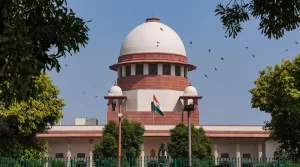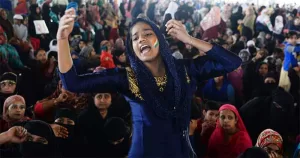The Editors Guild of India (EGI) on Tuesday expressed “shock and disbelief” at the recent report of a group of ministers (GoM) suggesting steps to “neutralise” persons writing against the government.
It said the GoM report illustrates the government’s “increasingly draconian attitude” against any critique and inquiry by the press.
“The Editors Guild of India expresses shock and disbelief at the manner in which a group of ministers (GoM) has prepared a report with an embedded toolkit to control the narrative about the government in the media.
“This GoM, comprising five cabinet and four ministers of state, had been constituted by the government in mid-2020, without any provocation and at a time when various press freedom and democracy indices show a rapid slide,” the EGI said in a statement.
The report which was titled ‘The Group of Ministers on Government Communication’ suggests a list of steps to be taken by several ministries to tackle the influence of “international media” and Indian digital news platforms like The Wire and Scroll.in, which, as per the report, have created “false narratives” about the central government. The report also proposed identifying, tracking and controlling critics of the government whilst promoting journalists, websites and commentators who supported the official narrative.
The Guild said that the report, which was prepared at the end of 2020 and has recently emerged in the media, “further illustrates the government’s increasingly draconian attitude against any critique and inquiry by the press.”
The suggestions from the GoM report hint at increased surveillance and targeting of writers and journalists who depart from the government’s narrative, the editors’ body said.
In reference to an observation reportedly made by Mukhtar Abbas Naqvi, the Union minister of minority affairs, the statement also said, “One of the more disturbing instances is the suggestion by a Union Minister that refers to developing a strategy to neutralise the people who are writing against the government without facts and set false narratives/spread fake news”.
The EGI said that in the absence of any clarity on what will constitute fake news and the process to be followed, such observations smack of an intention to simply muzzle any criticism of the government.
Since the report was made public, some of those who have been named in the report have denied any involvement in its drafting, it said.
It added that the preparation of the GoM report and its debilitating import on media freedom and journalists is a major concern for EGI, which demands that the government, which is supposed to safeguard constitutional values of freedom of expression should make it clear that it is committed to the plurality of views in the media.
The report of the Group of Ministers has suggestions for tracking 50 negative and 50 positive influencers on social media and neutralise people who are writing against the government without facts to spread fake news.
The GoM comprising nine ministers – Ravi Shankar Prasad, Prakash Javadekar, Smriti Irani, S Jaishankar, Mukhtar Abbas Naqvi, Hardeep Singh Puri, Babul Supriyo, Anurag Thakur and Kiren Rijiju – had held six meetings between June 14 and July 19 2020 before putting together the 97-page report.
The statement regarding the GoM report comes a few days after the Guild criticised the new IT rules introduced by the Union government.
“The rules, issued under the Information Technology Act, 2000, fundamentally alter how publishers of news operate over the internet and have the potential to seriously undermine media freedom in India,” the EGI statement, signed by its office bearers, Seema Mustafa, Sanjay Kapoor, and Anant Nath, said.
The recent notification of the Information Technology (Intermediary Guidelines and Digital Media Ethics Code) Rules, 2021 gives the information and broadcasting ministry emergency powers to summarily take down content from digital platforms, including news websites, without giving a hearing to the publisher. The EGI expressed also concern over the fact that the government did not consult various stakeholders before notifying these “far-reaching” rules.
(Courtesy: The Wire.)




